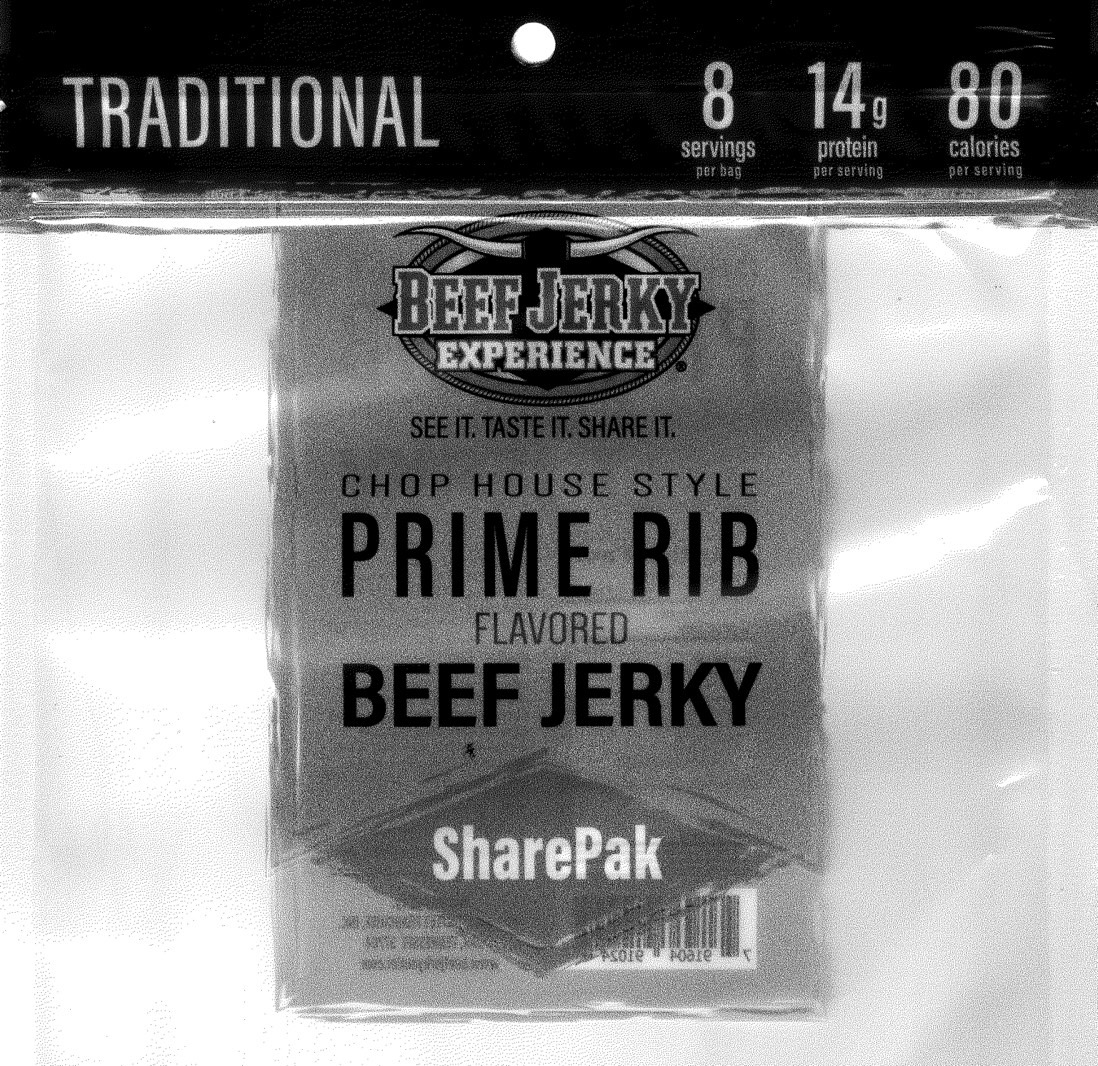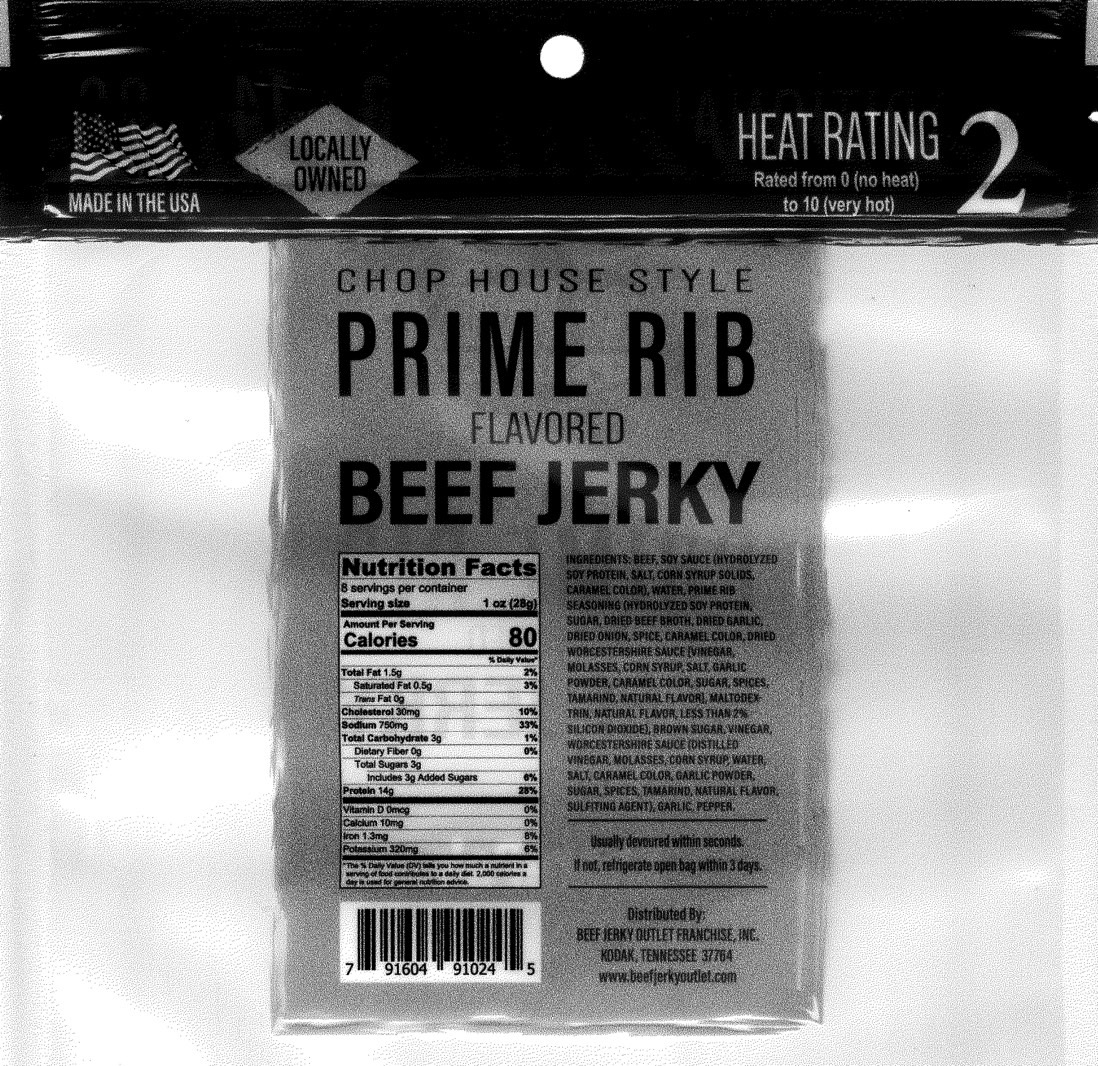Beef jerky recall: Check your pantry for this potentially dangerous jerky
Listeria monocytogenes is a pathogen that can lead to fatal infections in some people. That’s why health agencies routinely test food products for this bacteria. It’s also why product recalls are issued due to positive test results. Magnolia Provision Company’s recall of certain beef jerky products is the latest example. A product contact surface sample returned positive for Listeria, leading to a recall of about 497 pounds of beef jerky products.
Magnolia Provision Company beef jerky recall
Magnolia issued the beef jerky recall recently, including three different products in the action. The US Department of Agriculture’s (USDA) Food Safety and Inspection Service (FSIS) posted the press release at this link.
The following Magnolia products are part of the recall:
- 2-oz. packages of “BEEF JERKY EXPERIENCE CHOP HOUSE STYLE PRIME RIB FLAVORED BEEF JERKY” with “EXP 8/25/23” displayed on the back of the package.
- 8-oz. packages of “BEEF JERKY EXPERIENCE CHOP HOUSE STYLE PRIME RIB FLAVORED BEEF JERKY” with “EXP 8/25/23” displayed on the back of the package.
- 16-oz. packages of “BEEF JERKY EXPERIENCE CHOP HOUSE STYLE PRIME RIB FLAVORED BEEF JERKY” with “EXP 8/25/23” displayed on the back of the package.
Furthermore, the products have an establishment number listed as “EST. 8091” inside the USDA mark of inspection.
The company received confirmation from a third-party lab that a product contact surface sample showed a positive test result for Listeria. This triggered the beef jerky recall after the FSIS was notified.
Magnolia shipped the products nationwide. But it hasn’t received any reports of illness.

How Listeria is detected on food products
“If a ready-to-eat product like beef jerky that has already been processed for safety and will not be further processed is exposed to a food contact surface that tests positive for Listeria monocytogenes (referred to as post-lethality exposure), the product is adulterated,” Dr. Dennis D’Amico, Associate Professor in the Department of Animal Science at University of Connecticut, told BGR in a statement.
He continued, “Adulterated products that have already entered commerce are subject to recall.”
D’Amico also explained how the FSIS performs tests to detect the bacteria. The agency “implements microbiological sampling and testing programs for Listeria and other pathogens to assess the effectiveness of industry process controls, compliance with performance standards, and other efforts to control the presence of pathogens in FSIS-regulated products.”
“They have both random and risk-based sampling projects for products in their final finished packages,” the professor continued. “They also have a routine risk-based sampling project for food contact, environmental, and product samples taken during the production of post-lethality exposed RTE products like beef jerky as part of a Food Safety Assessment.”
Furthermore, the FSIS “also have an Intensified Verification Testing project that is initiated after an establishment has a positive Listeria result in either product or on a food contact surface or is initiated in response to continuing sanitation non-compliance.”

Listeria symptoms
People who consume products contaminated with Listeria, like the beef jerky in this recall, risk developing an infection. Healthy individuals will typically experience short-lived symptoms: fever, muscle aches, headache, stiff neck, confusion, loss of balance, and convulsions. Also, diarrhea or other gastrointestinal symptoms might precede the other infection signs.
Older adults, people with weakened immune systems, and pregnant women risk severe, potentially life-threatening adverse reactions.
Pregnant women might experience miscarriages and stillbirths. They also risk infection of the newborn.
Symptoms typically appear within a few days after eating contaminated food. But it may take weeks or sometimes months for the first signs of an infection to appear.
What you should do
The FSIS urges consumers who own Magnolia beef jerky products from this recall not to eat them. Buyers should throw the product away or return it to the place of purchase.
Furthermore, customers who experience symptoms consistent with a Listeria infection should contact their doctors.
Finally, if you’ve recently purchased Magnolia products, you should read the full beef jerky recall announcement at this link. It includes contact information for Magnolia and the FSIS.
For all the latest Lifestyle News Click Here
For the latest news and updates, follow us on Google News.

